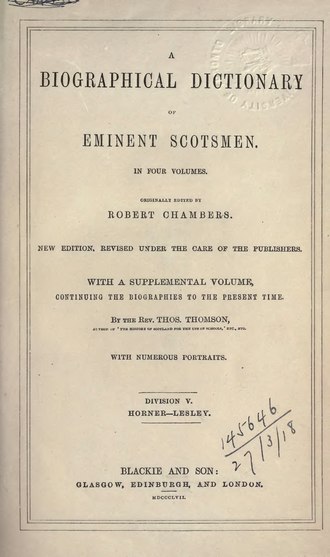The Cambridge Dictionary defines the term ‘reputation’ as ‘the opinion that people in general have about someone or something, or how much respect or admiration someone or something receives, based on past behaviour or character’.
According to the fount of all knowledge that is Wikipedia, the reputation of a person, social group, organisation, or place results from social evaluation based on a set of criteria, such as behaviour or performance.
Think for a moment of the current (July 2022) political scene in the UK. Boris Johnson has lost his position as leader of the Conservative party and Prime Minister: his reputation became so sullied by his evasions and lies that to continue was no longer tenable or acceptable.

Rishi Sunak and Liz Truss are the two remaining choices to succeed him. Both were members of Johnson’s cabinet. Sunak, who, like Johnson, was issued with a fixed penalty notice for breaching COVID-19 regulations during lockdowns, served most recently as Chancellor of the Exchequer. When he resigned – the first of many leaving the Johnson government, culminating with Johnson’s own resignation – his letter cited the economic policy differences between himself and the PM. Liz Truss currently serves as Foreign Secretary. Both are strong candidates, but will the Conservative party decide between them purely on the basis of their policy statements? Or will their reputations play a part, the opinions held about them based on their behaviour and performance? Reputation can 'make or break' an individual, and is what has been described as a 'highly efficient mechanism of social control', that is, it can be one of the ways in which individuals are influenced to adhere to certain values, principles, and behaviours within a given society.

The term 'reputation' itself derives from re- and putare (from the Proto-Indo-European root pau-, to cut, strike, or stamp) together meaning 'to judge repeatedly', but by the 16th century it was understood to relate to the established opinion of someone's character. And of course, we must not forget that characters can be blackened and reputations harmed by the words and actions of others, not just the person themselves.
This is what I believe to have been the case regarding my 10th-great-grandfather, James Balfour, who was born around the year 1530 at Montquhanny, Cupar, Fife.

(The ruins of Montquhanny Castle)
When I first discovered that he was part of my family tree, I researched various online accounts of his life - and was amazed by what I found. It is said:
- that he was involved in the murder of Cardinal Beaton in 1546 and the subsequent Siege of St. Andrrews Castle, after which he was condemned to be a galley slave with John Knox and other Protestant opponents of the Catholic Queen Mary. (The captives were allowed by the French to 'escape' after 3 years);
- that he then denounced Protestantism, entered the service of the Queen's mother, Mary of Guise, and was rewarded with significant legal and court appointments;
- that he subsequently joined the 'Lairds 'o the Congregation' (Protestant nobels who opposed Queen Mary's marriage to the Catholic Dauphin of France) but betrayed their plans;
- that he drew up the Craigmillar Bond (a pledge to murder Queen Mary's second husband Lord Darnley) and arranged for Darnly to be lodged at his brother Robert Balfour's house, Kirk o'Field, where the murder took place;
- that having drawn up the contract for Mary's marriage to Lord Bothwell, he then (when Mary and Bothwell were defeated at Carberry Hill) changed sides and surrendered Edinburgh Castle (of which he was Governor) to Moray (Mary's half-brother and Regent for her son James) in return for a pardon, a priory, and a pension;
- that he betrayed Queen Mary to her enemies by giving them the Casket Letters (supposed proof that she and Bothwell conspired in the murder of Darnley) and intercepted money sent from France for her aid;
- that by 1573 he was so distrusted by all parties that he fled to France until 1580, when he returned to Scotland, now governed by King James VI himself.

- John Knox, who denounced Balfour in his ‘History’ (written for the Protestant Lords) for abandoning his ‘former friends’, for denying he was at St. Andrews or in the galleys, and for supporting Mary of Guise against the Lairds o’ the Congregation.

- James MacGill (Lord Rankeillor of Nether Rankeillour) whom Balfour replaced in 1566 as Lord Clerk Register, a position which MacGill had held for the previous 12 years. (In 1568 it was MacGill, not Balfour, who was one of those who produced the ‘Casket Letters’ at York, which implicated both Queen Mary and Bothwell in Darnley’s murder. Perhaps co-incidentally, MacGill’s wife Janet Adamson was a noted Protestant who was in correspondence with John Knox while he was in Geneva in 1557, and in 1584 she supported William Ruthven, Lord Gowrie, in the failed plot to kidnap James VI, for which she was banished from Edinburgh.)

- Matthew Stewart, 4th Earl of Lennox (father of Darnley and Regent 1570-1571) who had supported Cardinal Beaton for the regency for Queen Mary, and who acted against James Balfour with regard to Darnley’s murder.

- James Douglas, 4th Earl Morton (Regent 1572- 1581) who was one of the murderers of Rizzio in 1556, and thus an intended murderer of James Balfour. As a matter of interest, the title ‘Lord Pittendreich’, given to Balfour by Queen Mary, was originally a title belonging to the Douglas family – yet another reason for sour grapes?

- He grew up as a loyal Catholic, who was drawn in to the rebellion at St. Andrews through one or more of his brothers;
- As a loyal Catholic, it was natural for him to serve Mary of Guise and her daughter Queen Mary;
- He was the scapegoat over the murder of Darnley, for the sake of one or both of his brothers, Robert and Gilbert;
- He supported Bothwell (a Scotsman) over Darnley (an Englishman) because he was a Scottish loyalist first, and a Catholic second;
- He loathed the conflicts between Catholics & Protestants, hence negotiating the Pacification of Perth, putting Scotland’s needs before his own preferences;
- He could not support Morton’s regency and therefore temporarily removed himself to France (although returning to Scotland often enough to beget at least two children);
- His reputation for duplicity was false, contrived by his detractors, and was in any case invalidated not least by the restoration of his titles and lands, and being received at court by King James VI.






No comments:
Post a Comment